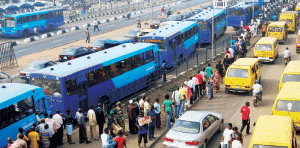Even with high cost of living, Lagos remains the nation’s most hospitable, investor-friendly destination, Special Correspondent, SAM NWOKORO, writes
From the period of Nigeria’s amalgamation in 1914, the country has weathered political and social upheavals, occasioned by distrust among the various ethnic groups in the country. But Lagos State, in the face of the social disorder, has remained the nation’s most hospitable city, many have argued.
Those who hold this view insist that in the old Lagos, Nigerians knew no differences among them.
“Then, no one bothered about whether his neighbour was Hausa, or Igbo, or Yoruba or Efik or Nupe and others. Legend had it that for a visitor to settle in Lagos that time, all that was needed from him by his host was a keg of palm wine and four kolanut. There and then, he would get a parcel of land for a token, become Lagosian. No hassles, no certificate of occupancy, no swearing of affidavit, no stamp duty, no survey map, no kick-back and no governor’s signature was needed. It did not matter if the visitor was a Christian or Muslim or of any ethnic stock,” a resident, who spoke off the records, volunteered.
To a large extent, that Lagos spirit of hospitality to anyone has stuck; despite the political upheavals and cultural renaissance of the diverse people that populate it. Despite the complex mix of the city’s demography, diverse religions, cultural norms, languages and worldview of her over 18 million people, the residennts have managed to live harmoniously.
A communication sociologist, Dr. Olatunji Dare, once described the city of Lagos in one public forum as “a land of complex humanity where natural differences collapse into a contrived module of life and living”.
What the Mass Communication teacher was actually saying was that it appears that accident of history has made it impossible for any ethnic norm or culture to super-impose itself over others, not even that of the indigenous Yoruba aborigines.
In modern definition, Lagos can be likened to New York City in the United States, a home for all. According to observers, that may have accounted for why, to a large extent, successive administrations in the state had managed to maintain the profile of the state as one of the most peaceful multi-ethnic settlements in Africa.
Lagos is a melting pot for Nigeria’s more than 250 ethnic nationalities. Lagos State Commissioner for Home Affairs and Culture, Oyinlomo Danmole, at a recent forum, said: “God has, in his wisdom, made it so that Lagos remains the unifying land in the country… This is because our government under the able leadership of Babatunde Raji Fashola (SAN) is a humanitarian, people-focused leader and a detribalised Nigerian. He is a man that has kept his promise to people of the state irrespective of their ethnicity. He promised that he would treat everyone in Lagos as a Lagosian. And he kept that promise.”
Since the return of democracy in Nigeria, Lagos has not witnessed any inter-ethnic or religious upheaval, analysts have been quick to note. Apart from a flash of Yoruba and Hausa half hour crisis in one remote locality sometime in 2001, Lagos has never witnessed any kind of public hysteria among her residents.
The perceived culture of prudent management of resources by the state’s leadership is counted among the factors attracting investors, local and foreign, to want to have business relationship with the state government in many of its myriad Public-Private Partnership (PPP) portfolios. Even so, the same investment flow is taking place in the ever-growing number of corporate boardrooms and other big, small and medium private companies in the state.
A public relations expert, Dr. Chuks Osuji, in his newspaper column recently, observed that the tag on Nigeria in the world today as an investment haven is seen by the outside world through Lagos. Fashola has made success of the PPP mode of public works, to the extent that he has become a role model for other governors.
Lagos is home to all Nigerians, irrespective of their ethnicity or religion. Sylvester Iweoha, a resident of Idi-Araba in Mushin, who came in 1956, before Independence, says Yoruba by nature are liberal, which accounted for why there are so many non-indigene landlords in Lagos.
“In those days, you didn’t need to pay anything to own a land. That was how my father acquired land here in the 1950s. That time, much of Lagos was bush. All you needed was to buy a keg of palm wine and kolanut, and the elders of the community would take a token from you as sacrifice and you have become a landowner.”
And like what the Commissioner for Information and Strategy, Lateef Ibirogba, told an audience recently, “Lagos is the hub of the Nigerian economy, and so peace among all the ethnic groups is paramount.”
Even at that, critics see the high regime of taxation in the state as a major disincentive to business, especially on small and medium scale entrepreneurs. The tax regime, they observe, is discourages start-ups.
There is also the factor of touts in various guises, extorting money from business concerns.
“It has become fashionable to argue that Lagos is the most business-friendly and hospitable place in the country. To some extent, the assertion may be correct. But there is the other side of the argument. The infrastructure profile in the state is not encouraging. The high incidence of poor public power supply in many parts of the state outside Ikeja, the capital, acts as a major disincentive to business and social engagement.
“In similar stead, the road network, aside some highbrow areas, is bad. For somebody doing business in such areas as Ago Palace Way in Okota, Alimosho, Ojo and Oriade council areas, living in Lagos could be a nightmare, given the near absence of basic infrastructure in them. The same ugly story replicates in areas as Ajeromi Ifelodun and Ayobo. It is so bad that some areas in the state, in this century, lack access to potable water. So, the touted business-friendly and hospitality picture being painted of Lagos may not be as rosy as some may think,” noted Michael Ibidun, a resident of Amuwo-Odofin area of the state.












